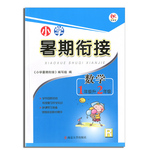题目内容
__________ we are having for dinner is not clear.

 学而优暑期衔接南京大学出版社系列答案
学而优暑期衔接南京大学出版社系列答案 Happy holiday欢乐假期暑假作业广东人民出版社系列答案
Happy holiday欢乐假期暑假作业广东人民出版社系列答案Different people use different languages. We Chinese speak Chinese, and, most of us are learning a foreign language. But there is another kind of language we need to know --- the language of the body.
All over the world, people “talk with their hand, with their heads and with their eyes.” When Japanese people meet, they bow. When Indians meet, they put their hands together. What do American and British do? Americans are more imformal(不拘小节的) than the British. They like to be friendly. They use first names, they ask questions and they talk easily about themselves. When they sit down, they like to relax in their chairs and make themselves comfortable. British people are more reserved(保守的). They take more time to make friends. They like to know you before they ask your name.
When British or American people meet someone for the first time, they shake hands. They do not usually shake hands with people they know well. Women sometimes kiss their women friends, and men kiss women friends (on one cheek only). When a man meets a man, he just smiles, and says, “Hello.” Men do not kiss each other, or hold hands. Even fathers and sons do not often kiss each other.
【小题1】In the passsage, the writer thinks that body language is ______________.
| A.uselss | B.difficult | C.quite easy | D.important |
| A.different countries hav the same body language. |
| B.different countries have different body anguages. |
| C.people in Asia share the same body language. |
| D.many people only use their body language. |
| A.sit straight | B.never sits down | C.makes fun of you | D.sits freely |
| A.imopssible | B.too easy | C.too difficult | D.slow |
| A.men | B.women | C.British | D.Americans |
| 完形填空 | ||||
| After 21 years of marriage, my wife wanted me to take another woman out to __1__. She said, "I love you, but I know this woman loves you too, and she would love to spend some time with you. " The other woman that my wife wanted me to visit was my mother, who has been a widow for 19 years, but my work had made __2__ impossible to visit her often. That night I called to __3__ her to go out for dinner. "What's wrong?Are you __4__?" she asked. "I thought that it would be __5__ to spend some time with you, just the two of us, " I answered. She thought about it __6__, and then agreed. That Friday after work, __7__ I drove to pick her up I was a bit nervous. When I arrived at her house, I __8__ that she, too, seemed to be __9__ about our date. She had curled her hair and was wearing the dress that she had worn to 10 her last wedding anniversary. We went to a restaurant that, 11 not the best, was very nice and comfortable. When I read the menu, I lifted my eyes and saw Mom sitting there 12 at me. A nostalgic smile was 13 her lips. During the dinner, we had a 14 conversation-nothing special but catching up on recent events of each other's life. A few days 15 , my mother died of a sudden heart attack. It happened so suddenly that I didn't hav e a chance to do 16 for her. Some time later, I received an envelope with a note 17 : "You will never know what that night meant for me. I'm looking forward to the 18 dinner. I love you, son. " At the moment, I understood the importance of saying in time: "I LOVE YOU". Nothing in life is more important than your 19 . Give them the time they deserve, because these things cannot be 20 till "some other time". | ||||
|
| 完形填空。 | |||
| True forgiveness is one of the most remarkable qualities a human can possess! In the fighting between two countries in the 1970s, a young man was walking from one village to the next when he was 1 by an armed guerrilla (游击队) fighter from the enemy country. The fighter 2 the young man down the hill where he was to be 3 . But a (n) 4 thing happened. The young man, who had 5 military (军事的) training, was able to disarm (解除武装) the fighter. Now, the table was 6 , and it was the fighter who was ordered down the hill. As they walked, 7 , the young man began to reflect on what was happening. Recalling the 8 of his mother, "Love your enemies; do good to those who 9 you." he found he could go no further. He 10 the gun into the bushes, told the fighter he was 11 to go and turned back 12 the hill. Minutes later, he heard footsteps 13 behind him as he walked. "Is this the end after all?" he 14 . Perhaps the fighter had got the gun and wanted to finish him off. But he continued on, 15 glancing back, until his enemy reached him, only to grab him in a hug and pour out 16 for sparing his life. Mercy often wears the face of 17 . And though it usually isn't an enemy in uniform that we are challenged to forgive, we hav 18 for mercy every day. Family members and friends, co-workers and neighbors and even strangers have 19 for our forgiveness. You know who they are. As Mahatma Gandhi said, "The 20 can never forgive. Forgiveness is the attribute (特性) of the strong." Be strong. Forgive. | |||
| ( )1. A. shot ( )2. A. demanded ( )3. A. beaten ( )4. A. amazing ( )5. A. watched ( )6. A. turned ( )7. A. thus ( )8. A. expressions ( )9. A. forgive ( )10. A. packed ( )11. A. free ( )12. A. for ( )13. A. showing ( )14. A. shouted ( )15. A. seldom ( )16. A. marks ( )17. A. awareness ( )18. A. opportunities ( )19. A. need ( )20. A. lonely |
B. murdered B. reminded B. shot B. frightening B. received B. covered B. indeed B. plans B. hate B. dragged B. slow B. into B. waving B. counted B. never B. favors B. kindness B. explanations B. responsibility B. weak |
C. killed C. ordered C. accepted C. inspiring C. accepted C. moved C. therefore C. words C. instruct C. forced C. nervous C. up C. running C. wondered C. always C. thanks C. safeness C. hopes C. patience C. healthy |
D. caught D. required D. driven D. confusing D. suggested D. repaired D. however D. signals D. help D. threw D. eager D. down D. jumping D. argued D. sometimes D. reasons D. forgiveness D. lessons D. energy D. calm |